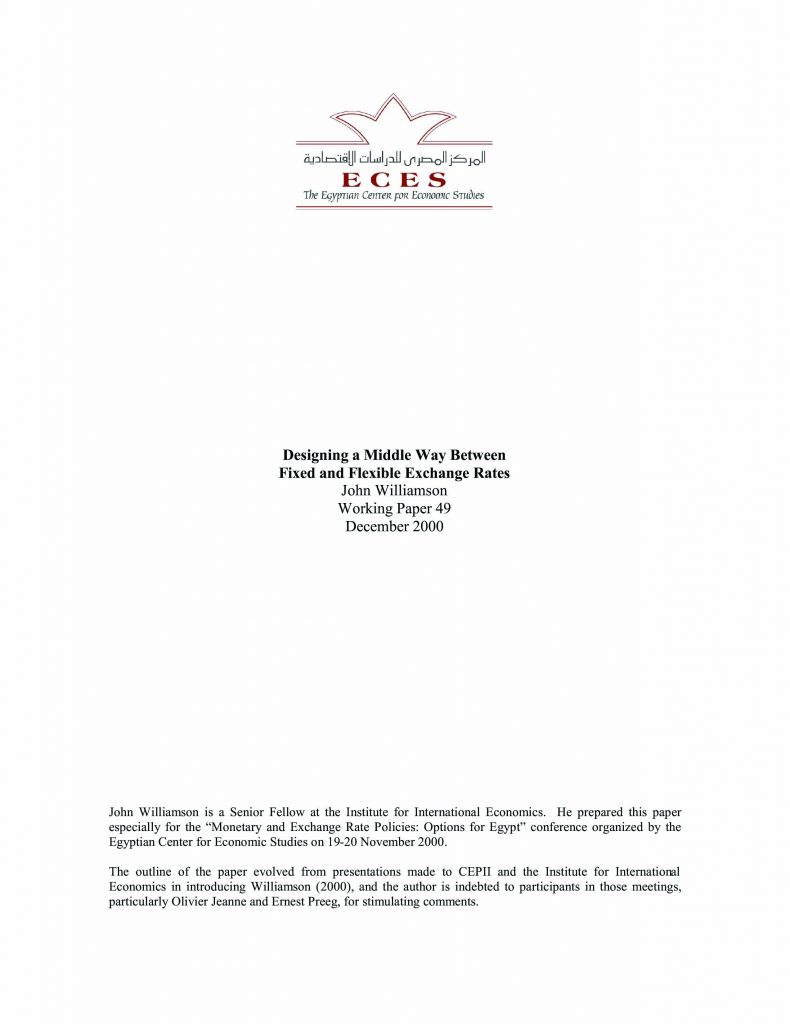Abstract:
This paper addresses the new-orthodox view that the choice of exchange rate regime has been hollowed out to a choice between the two corner solutions of firmly fixed and more or less freely floating exchange rates. While conceding that both these regimes have an advantage over intermediate regimes in terms of being less vulnerable to crisis, as well as simplifying the policy assignment, it argues that neither a currency board nor a freely floating exchange rate regime is necessarily crisis-free. More important, neither of them offer the potential advantage of a well-managed intermediate regime, notably a BBC (basket, band, and crawl) system, of allowing policy to be addressed to limiting exchange rate misalignments. A number of countries with ostensibly floating currencies are revealing by their actions that they prefer an intermediate regime. While such managed floating may be a reasonable compromise given the pressure from the IMF to float, it suffers three potential disadvantages as compared to an articulated BBC regime: it is not transparent, it precludes some types of policy cooperation (such as the use of a common basket peg by a number of countries with strong trade interdependence), and it foregoes the possibility of inducing stabilizing speculation a la Hrugman’s analysis of target zones. The paper concludes by describing three softer versions of the BBC regime that would be less vulnerable to crises than traditional intermediate regimes: the reference rate proposal, bands with soft margins, and monitoring bands.

